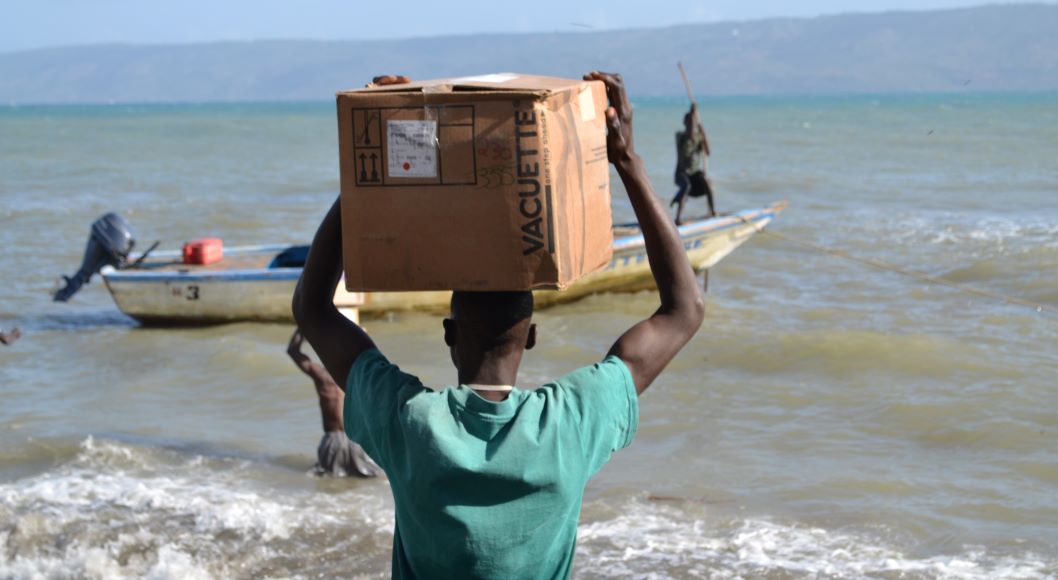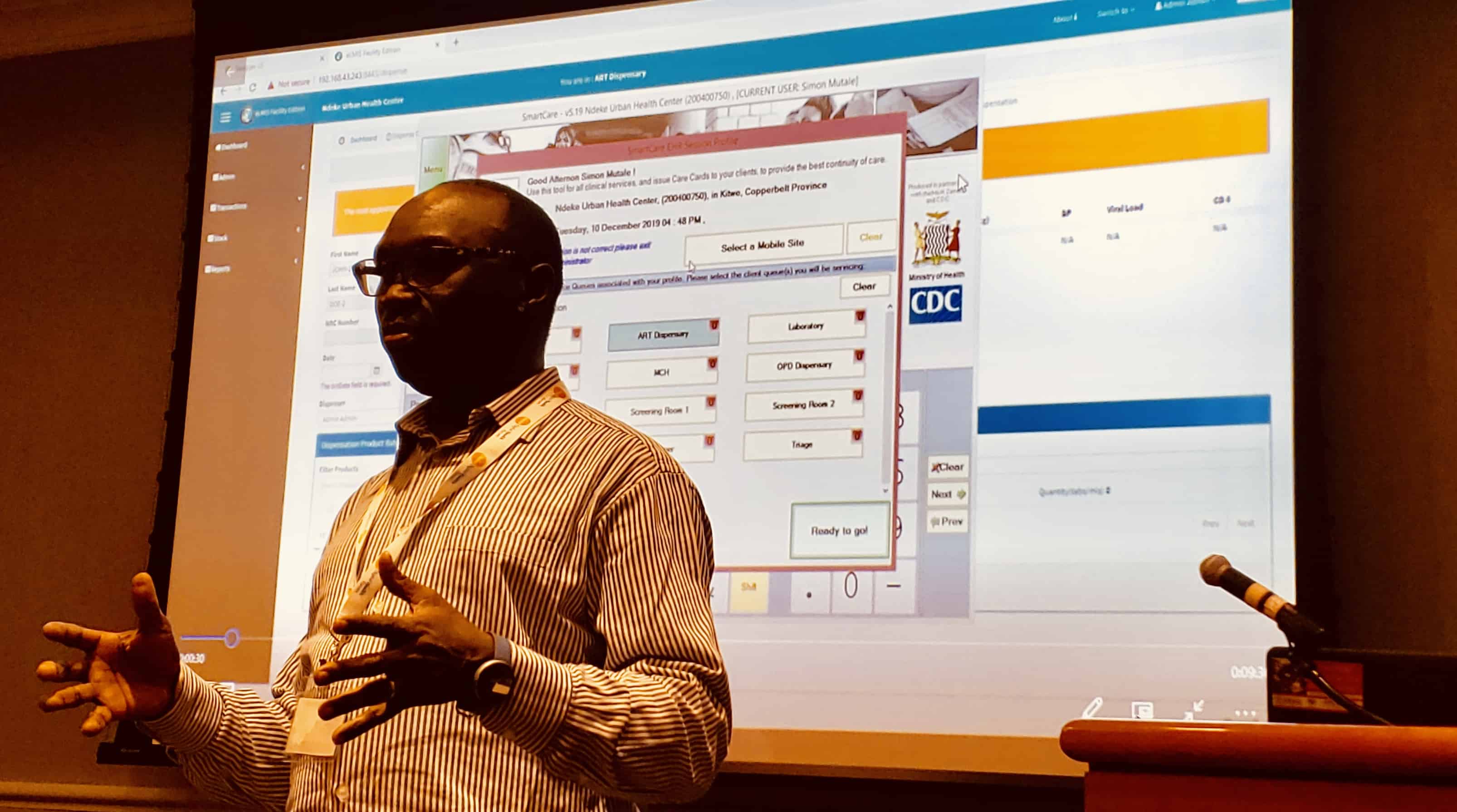For more than a decade, JSI, through its subsidiary, the Partnership for Supply Chain Management (PFSCM), and several other organizations, managed the President's Emergency Plan for AIDS Relief’s (PEPFAR) Supply Chain Management System (SCMS). SCMS was established to provide lifesaving health products to meet the care and treatment needs of people living with, or affected by HIV and AIDS.
As one of the world’s largest public health supply chains, SCMS delivered more than $2.8 billion in healthcare products to 66 PEPFAR-supported countries and managed the procurement and distribution of over 18,500 deliveries.
In the early 2000s, some 30 million people were infected with HIV on the African continent alone, yet only about 50,000 had access to treatment. Patients were dying at alarming rates, and the cost to treat a single patient was up to $10,000 per year.
At the height of the global AIDS crisis, many of the hardest-hit countries lacked the public health supply chain infrastructure to rapidly and effectively respond to the situation. Systems were challenged by frequent stockouts, overstocking, expiries, and wastage.
Between 2005 and 2016, PEPFAR, through the U.S. Agency for International Development (USAID), funded SCMS to procure and distribute essential health products for people living with, and affected by HIV. Products included: essential medicines, antiretrovirals (ARVs), rapid diagnostic test kits, laboratory equipment, medical devices, voluntary medical male circumcision kits, antimalarials, artemisinin-based combination therapy, and more.
SCMS implemented several winning supply chain strategies including creating a robust quantification paradigm, undertaking pooled procurement, consolidating orders, using regional distribution centers, building strategic relationships with suppliers, and implementing risk-based routine product quality assurance testing.
Over the course of 10 years:
- SCMS delivered more than $2.8 billion in life-saving commodities to 66 PEPFAR-supported countries and managed over 18,500 deliveries.
- 9.5 million patients supported by PEPFAR received ARV treatment.
- Cost of drugs to treat a single patient dropped from about $10,000 per year to $110 per year.
- SCMS achieved 84 percent on-time delivery of core products.
- 85% of all procured ARVs were shipped by ocean as opposed to air, generating cost savings of $176 million.
- SCMS achieved more than $149 million in savings by switching from branded to generic ARVs.
- SCMS virtually eliminated central-level stock outs of HIV commodities in PEPFAR-supported countries.
- SCMS purchased US$356 million of products in the field, supporting local enterprises
By the end of the project, SCMS had contributed to making the global market for HIV commodities more vibrant, more responsive to lower and middle-income consumer needs, and more affordable.
SCMS was implemented by JSI and PFSCM from 2006 to 2016 in collaboration with team members Booz Allen Hamilton, Crown Agents USA Inc., i+solutions, Imperial Health Services, Management Sciences for Health, MAP International, North-West University, Northrop Grumman, UPS Supply Chain Solutions, Voxiva, The Manoff group, and 3i Infotech.
Global collaborators included African Society of Laboratory Medicine, Bill & Melinda Gates Foundation, Catholic Relief Services, Clinton Health Access Initiative, Columbia University, Department for International Development UK, Ecumenical Pharmaceutical Network, Elizabeth Glaser Pediatric AIDS Foundation, Ensemble pour une Solidarité Thérapeutique Hospitalière En Réseau, Gavi Alliance, The Global Fund to Fight AIDS, Tuberculosis and Malaria, Harvard School of Public Health, Inter-Agency Task Team for Prevention and Treatment of HIV Infection in Pregnant Women, Mothers and Children, International AIDS Society, Médecins Sans Frontières, People that Deliver, Solidarité Thérapeutique et Initiatives contre le SIDA, UNITAID, United Nations (United Nations Children’s Fund, United Nations Development Program, Joint United Nations Program on HIV/AIDS), US Government (Centers for Disease Control and Prevention, Department of Defense, Office of the U.S. Global AIDS Coordinator, United States Agency for International Development, US Food and Drug Administration), The William Davidson Institute at the University of Michigan Business School, World Bank, and World Health Organization.
Read the SCMS 10 year review on the Partnership for Supply Chain Management website.



